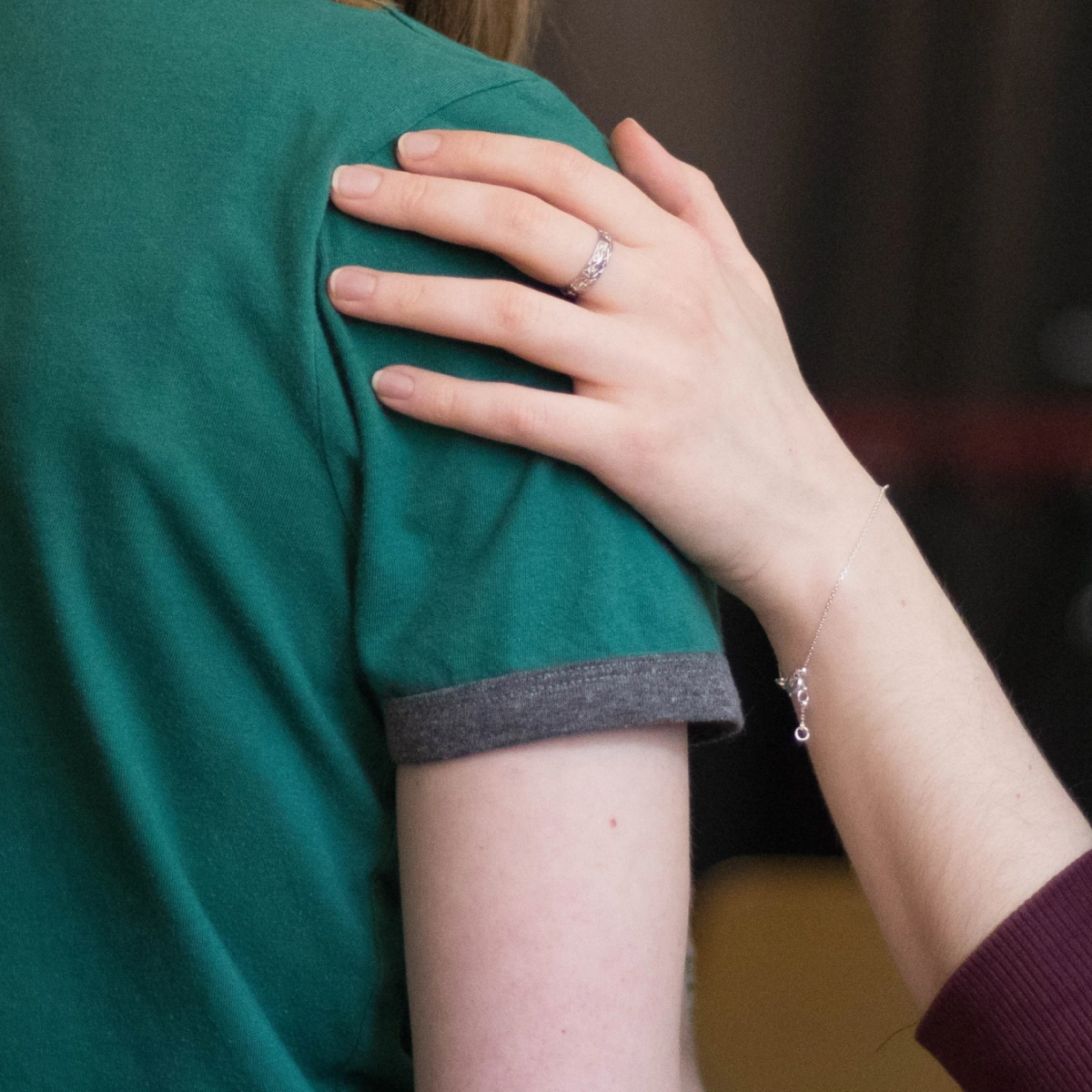Family Violence
Family violence is not limited to physical abuse. People often fail to recognise other forms of family violence experienced by them or their loved ones.
In Victoria, family violence (formerly known as domestic violence) is defined broadly under the Family Violence Protection Act 2008. It encompasses various forms of abuse, not just physical, aiming to control or dominate a family member through fear. The behaviour could be:
Physically or sexually abusive
Emotionally or psychologically abusive
Economically abusive
Threatening
Coercive
Controlling or dominating in any way, causing the family member to fear for their safety and wellbeing, or fear for the safety and wellbeing of another person.



Family violence is not an argument once in a while, it is a continuous pattern of abusive behaviour from one person towards another, often in multiple ways.
Family violence can take various forms, including yelling, damaging property, conflict, threats, or exposure to harmful behavior. Even children who witness such acts can be affected.
If you experience family violence, seek protection through a Family Violence Intervention Order. It can cover you and your children, ensuring safety and support during these challenging times.
Learn more about Family Violence Intervention Orders below.
Family violence is never ok. Everyone deserves the right to feel safe and secure in their own home.
QWho is a Family Member?
Under the Family Violence Protection Act 2008, family violence encompasses a wide range of relationships. A family member can be:
- Spouse or domestic partner
- Intimate personal relationship, past or present
- Relative
- Child living with or previously living with the person on a regular basis
- Child of a person with whom an intimate relationship exists/existed
- Any other person regarded as a family member by the relevant person, based on the circumstances of the relationship
Note: An intimate personal relationship may be non-sexual.
QWhat is a family violence intervention order?
A family violence intervention order (FVIO) is a court order (a legally enforceable document) to protect a person, their children and their property from a family member, partner or ex-partner.
A FVIO may also be known as a domestic violence order, protection order, intervention order, or a violence restraining order in other states and territories.
QWhat conditions can there be on Family Violence Intervention Orders?
Conditions in an intervention order are the rules for the respondent, specifying what they can or can’t do. These varied conditions aim to prevent certain behaviours and ensure the safety of the protected person/s, including their children.
For example, a respondent may be stopped from:
- committing family violence against the protected person
- intentionally damaging the protected person�’s property or threatening to do so
- attempting to locate or follow the protected person or keeping them under surveillance
- publishing on the internet or by email or other electronic communication any material about the protected person
- contacting or communicating with the protected person by any means
- approaching or remaining within a certain distance of the protected person
- going to or remaining within a certain distance of where the protected person lives, works or attends school or childcare
- getting another person to do anything the respondent must not do under the order.
QWhat else can the magistrate order?
The applicant can also ask the magistrate to order the respondent to:
- return the personal property of the protected person or a family member
- return jointly owned property that allows the protected person’s everyday life to continue with little disruption
- hand in any firearms or weapons to police
- suspend or cancel any firearms authority, weapons approval or weapons exemption.
The applicant (it may be the police or the individual seeking protection) can choose as many conditions as they like from the list, depending on the circumstances and what is needed for protection.
The magistrate makes the final decision about what conditions are included in an interim or final order.
QWhen can you make an application for a Family Violence Intervention Order?
-
- The police can issue a family violence safety notice if you need immediate protection after they have attended an incident.
- You can apply for a family violence intervention order at any Magistrates’ Court in Victoria if you are over 18. If you have children and you fear for your children’s safety, you can include them on your intervention order application too.
- You can apply for an intervention order at the Children’s Court if you are between 14 and 18 or applying for a child who is under 18 and they are not part of your own application.
If you are making your own application, you can call your closest Magistrates’ Court to make an appointment.
QI have an intervention order and the respondent has breached it – what should I do?
Breaking the conditions of a family violence intervention order is serious. It is important you report any breach of an intervention order to police. If you are not in immediate danger, please contact the police member who has been assisting you or your local police station to report the breach. If you are or another person are in danger, call 000.
It is a good idea to keep records of any breaches of the intervention order conditions by:
- Writing down what has happened, and recording the exact time and date if you can
- Provide any evidence you have (for example, photos, Facebook posts, voicemails, videos, documents) to the police and your lawyer
- Keep copies of your evidence in a safe place
QA family violence intervention order application has been made against me – what can I do?
If an application for a family violence intervention order has been made against you (i.e. you are the respondent), the police will give you:
- A copy of the application which will describe in detail what the applicant (the person applying for the order) says you have done
- A summons, which includes details about the court hearing.
The police may also serve you with a family violence safety notice, an interim order, a warrant for your arrest or a final notice.
You need to go to court on the date on the summons or on your bail undertaking. An order can be made against you if you do not go to court.
Depending on the situation and the circumstances, being served with an intervention order application may be a confusing time.
There are a number of options for dealing with intervention orders. Please make an appointment with us so we can to talk about what has happened and your options.
If reading this has raised any concerns for you:
In an emergency, please call 000
Lifeline Australia: 12 11 14
Safe Steps Family Violence Response Line 1800 019 123
Beyond Blue 1300 224 636
The National Sexual Assault, Family & Domestic Violence Counselling Helpline (Confidential): 1800 RESPECT
Mensline: 1300 78 99 78
Kids Helpline: 1800 551 800
Text Lifeline: 0477 131 114 (available 6.00pm – midnight, 7 days a week)
Relationships Australia: 1300 364 277
National Disability Abuse and Neglect Hotline: 1800 880 052

You’re not alone.
Navigating family law can feel overwhelming. Over the years, we’ve discovered that one of the biggest things missing from the process is the reassurance others have been where you are.


